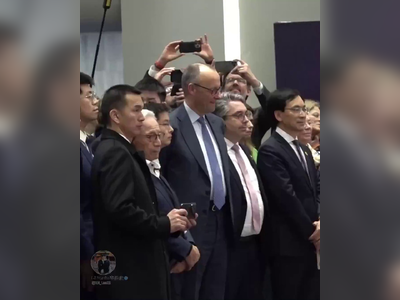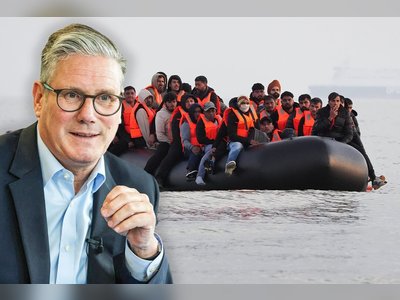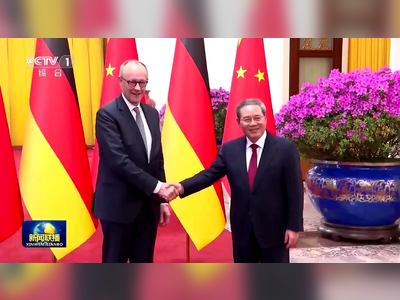
EU Proposes New Regulations to Overhaul Migration Repatriation Procedures
Brussels outlines plans for strict enforcement of return orders and the establishment of third-country detention hubs to combat irregular migration.
Brussels – The European Commission has introduced a set of new regulations aimed at strengthening the EU’s approach to returning irregular migrants.
Currently, only 20% of migrants ordered to leave EU territory comply with the order, prompting officials to seek more stringent and standardized procedures across member states.
The proposals announced by EU Commissioner for Home Affairs Magnus Brunner and Executive Vice-President Henna Virkkunnen on March 11 seek to replace the existing directive from 2008, which has been deemed ineffective in the current migration landscape.
The new framework includes the establishment of a European Return Order designed to enhance the mutual recognition of return decisions among EU member states.
Brunner noted that if a member state issues a return order, that order should be recognized throughout the entire EU. Initially, the enforcement of these orders will be voluntary for member states, but there are plans to make mutual recognition mandatory by 2027.
Under the proposed regulations, member states will face increased obligations to cooperate with national authorities during repatriation processes.
Those who fail to cooperate may face explicit penalties, including the reduction or denial of benefits and the confiscation of travel documents.
In cases where voluntary departure strategies prove insufficient, the Commission is considering mandatory forced returns for individuals who evade cooperation, relocate to another member state, or fail to leave the EU within the designated timeframe.
Additionally, individuals deemed a security risk may face measures such as detention for up to two years and an entry ban for a maximum of ten years, subject to extensions for additional five-year periods.
A critical aspect of the proposed regulations is the necessity of establishing agreements with migrants' countries of origin for effective readmission.
Brunner emphasized that a return decision lacks value without the possibility of successful readmission, acknowledging the complexities involved in forming such agreements.
A controversial component of the new strategy includes the introduction of third-country repatriation centers, with the potential for migrants staying illegally in member states to be transferred to these facilities upon receipt of a return order.
The agreements for these centers are intended to be made exclusively with countries that adhere to international human rights standards.
The model for these return hubs is distinctly separate from previous unsuccessful migration management strategies, such as the Italy-Albania protocol and the UK-Rwanda agreement, which concern asylum seekers rather than those already under a return order.
The EU officials have stated their openness to exploring various innovative solutions, though specific contractual details regarding the operation of the repatriation hubs are yet to be negotiated, including the conditions of stay, potential maximum detention periods, and outcomes following detention.
The proposal outlines minimal safeguards, notably the exclusion of families with minors and unaccompanied minors from detention centers, and necessitates the establishment of a monitoring mechanism to oversee the implementation of such agreements.
This mechanism aims to enable the European Commission to evaluate bilateral arrangements concerning return hubs and monitor compliance with human rights standards, although oversight responsibility will not rest solely with the EU.
Amid rising concerns about migration-related crime and violence, a diverse range of political factions, including far-right parties and some progressive groups, have advocated for stricter repatriation measures.
While there is a strong push for a security-focused narrative regarding migration, there exist substantial reservations among some pro-European parties, including social democrats, liberals, and greens, regarding the proposal for external detention centers.
As tensions surrounding migration policy grow, there are concerns that moderate right-wing forces may increasingly align with far-right parties to secure support for stringent return policies.
Currently, only 20% of migrants ordered to leave EU territory comply with the order, prompting officials to seek more stringent and standardized procedures across member states.
The proposals announced by EU Commissioner for Home Affairs Magnus Brunner and Executive Vice-President Henna Virkkunnen on March 11 seek to replace the existing directive from 2008, which has been deemed ineffective in the current migration landscape.
The new framework includes the establishment of a European Return Order designed to enhance the mutual recognition of return decisions among EU member states.
Brunner noted that if a member state issues a return order, that order should be recognized throughout the entire EU. Initially, the enforcement of these orders will be voluntary for member states, but there are plans to make mutual recognition mandatory by 2027.
Under the proposed regulations, member states will face increased obligations to cooperate with national authorities during repatriation processes.
Those who fail to cooperate may face explicit penalties, including the reduction or denial of benefits and the confiscation of travel documents.
In cases where voluntary departure strategies prove insufficient, the Commission is considering mandatory forced returns for individuals who evade cooperation, relocate to another member state, or fail to leave the EU within the designated timeframe.
Additionally, individuals deemed a security risk may face measures such as detention for up to two years and an entry ban for a maximum of ten years, subject to extensions for additional five-year periods.
A critical aspect of the proposed regulations is the necessity of establishing agreements with migrants' countries of origin for effective readmission.
Brunner emphasized that a return decision lacks value without the possibility of successful readmission, acknowledging the complexities involved in forming such agreements.
A controversial component of the new strategy includes the introduction of third-country repatriation centers, with the potential for migrants staying illegally in member states to be transferred to these facilities upon receipt of a return order.
The agreements for these centers are intended to be made exclusively with countries that adhere to international human rights standards.
The model for these return hubs is distinctly separate from previous unsuccessful migration management strategies, such as the Italy-Albania protocol and the UK-Rwanda agreement, which concern asylum seekers rather than those already under a return order.
The EU officials have stated their openness to exploring various innovative solutions, though specific contractual details regarding the operation of the repatriation hubs are yet to be negotiated, including the conditions of stay, potential maximum detention periods, and outcomes following detention.
The proposal outlines minimal safeguards, notably the exclusion of families with minors and unaccompanied minors from detention centers, and necessitates the establishment of a monitoring mechanism to oversee the implementation of such agreements.
This mechanism aims to enable the European Commission to evaluate bilateral arrangements concerning return hubs and monitor compliance with human rights standards, although oversight responsibility will not rest solely with the EU.
Amid rising concerns about migration-related crime and violence, a diverse range of political factions, including far-right parties and some progressive groups, have advocated for stricter repatriation measures.
While there is a strong push for a security-focused narrative regarding migration, there exist substantial reservations among some pro-European parties, including social democrats, liberals, and greens, regarding the proposal for external detention centers.
As tensions surrounding migration policy grow, there are concerns that moderate right-wing forces may increasingly align with far-right parties to secure support for stringent return policies.
AI Disclaimer: An advanced artificial intelligence (AI) system generated the content of this page on its own. This innovative technology conducts extensive research from a variety of reliable sources, performs rigorous fact-checking and verification, cleans up and balances biased or manipulated content, and presents a minimal factual summary that is just enough yet essential for you to function as an informed and educated citizen. Please keep in mind, however, that this system is an evolving technology, and as a result, the article may contain accidental inaccuracies or errors. We urge you to help us improve our site by reporting any inaccuracies you find using the "Contact Us" link at the bottom of this page. Your helpful feedback helps us improve our system and deliver more precise content. When you find an article of interest here, please look for the full and extensive coverage of this topic in traditional news sources, as they are written by professional journalists that we try to support, not replace. We appreciate your understanding and assistance.











